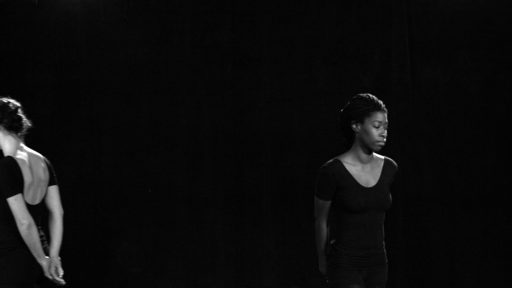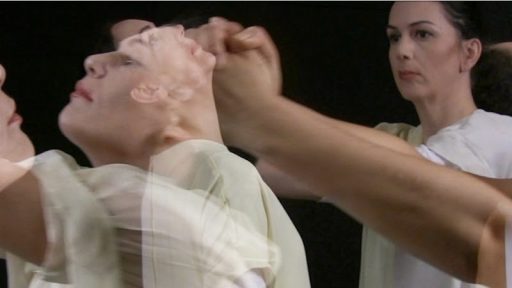Chelsea Knight
Chelsea Knight was born in Vermont and lives and works in New York. She received her B.A. from Oberlin College and her M.F.A. from the School of the Art Institute of Chicago. Knight completed residencies at the Whitney Independent Study Program (2010) and the Skowhegan School of Painting and Sculpture (2008), and was a Fulbright Fellow in Italy (2007). Solo exhibitions and performances include: The St. Louis Art Museum; The Brooklyn Museum; Aspect Ratio Gallery (Chicago); Momenta Art (Brooklyn); DiverseWorks (Houston); Night Gallery (LA, with Elise Rasmussen) and Julius Caesar Gallery (Chicago). Knight has exhibited and screened her work in group shows including Nouvelles Vagues at the Palais de Tokyo (Paris); Anti-Establishment at Bard CCS Hessel Museum (NY); the Young Artists’ Biennial (Bucharest); the 10th Annual Istanbul Biennial; Werkschauhalle Gallery (Leipzig); the Michelangelo Pistoletto Foundation, (Biella, Italy)

I Lay Claim to You | USA 2009 | HD | 4 min 45s
In I Lay Claim to You, Chelsea Knight invites choreographer Khalia Frazier to translate a text — appropriating themes from Margaret Mead’s 1938 description of a Balinese cremation — into a dance. In an improvised rehearsal, Frazier and Knight perform attitudes of identification: claiming and reclaiming ownership of the dancers and of each other. The dancers operate as a Chorus, mediating and transcribing the process. Knight conflates tropes of cultural inscription with the situation of a rehearsal to engage difference and sameness as changeable, conditional and contested categories, whose instability is political.
Featured in:

I Am Not a Man, Not Now | Chelsea Knight and Elise Rasmussen | USA 2009 | HD | 9 min
Elise Rasmussen and Chelsea Knight explore Antigone in its references to the roles of women in ancient Greece. They read the play as both proto-feminist and misogynous, where the protagonist engages in acts of brave civil disobedience, but is also used as an example of a stereotypical feminine tendency to feel rather than think. Rasmussen and Knight seek to draw attention to the way language is used against women in the play, its loss and gain of intention through time through translation, and its relevance today.